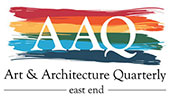Ocean Avenue, East Hampton
———————————————————–
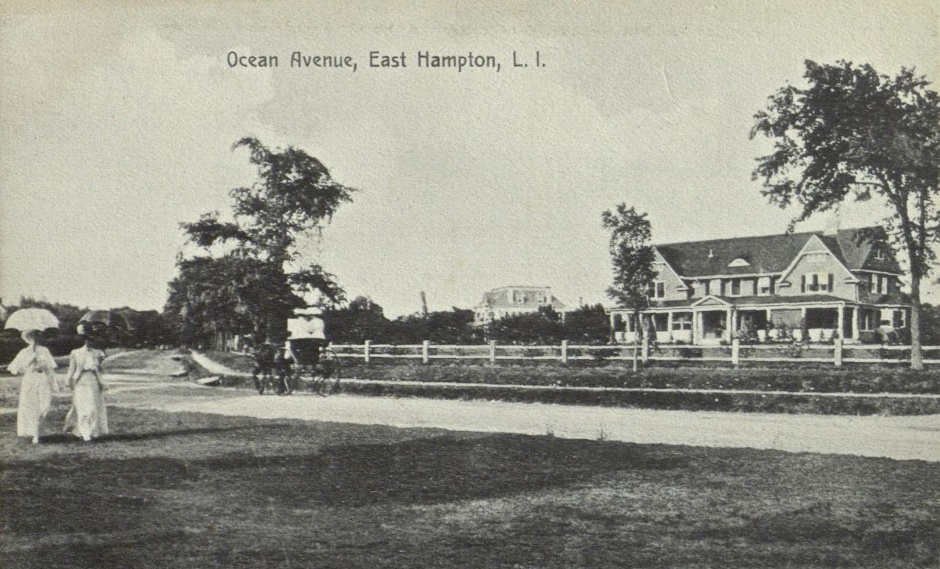 Ocean Avenue postcard from the Harvey Ginsberg Postcard Collectiion, courtesy of the East Hampton Library, Long Island Collection.
Ocean Avenue postcard from the Harvey Ginsberg Postcard Collectiion, courtesy of the East Hampton Library, Long Island Collection.
East Hampton’s early summer colony developed along Calf Pasture Lane, which led from the south end of Main Street through pastureland to the beach by Hook Pond. By 1900, when this road was the main thoroughfare of a flourishing summer colony, it had been named Ocean Avenue.
Today, Ocean Avenue remains the heart of East Hampton’s historic summer colony. Fourteen houses on Ocean Avenue dating from 1870 to 1907 correspond with the period during which the character of East Hampton’s summer colony was established.
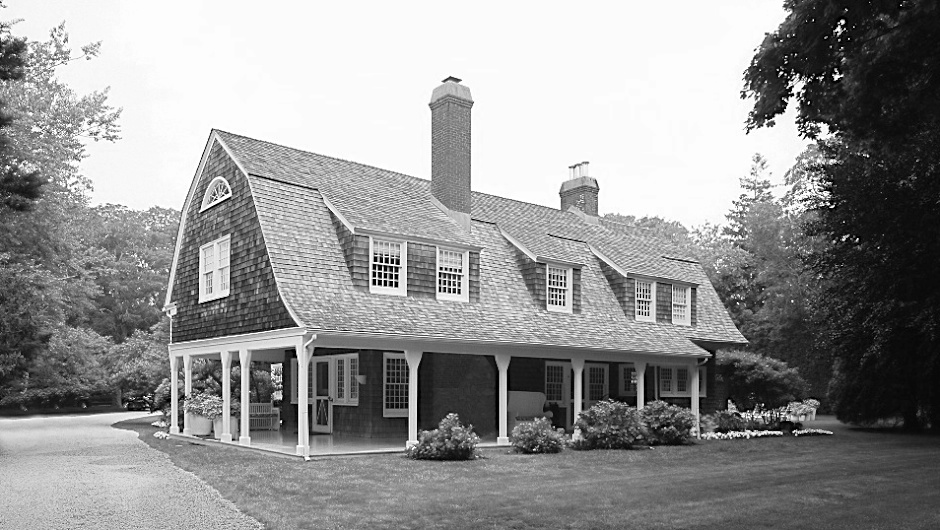 Munroe House, 1889, designed by architect Isaac Henry Green
Munroe House, 1889, designed by architect Isaac Henry Green
The growth of the summer colony coincided with the rise of the Shingle Style, which became particularly popular in East Hampton. The ten Shingle Style cottages in the historic district include some of the most distinguished examples in the Village. The 1888 Herrick House and 1889 Munroe House designed by Isaac Henry Green introduced the Shingle Style to East Hampton. The Munroe House with its gambrel roof, recessed porch and informal unpretentious design, served as a model for many of the cottages that were to follow.
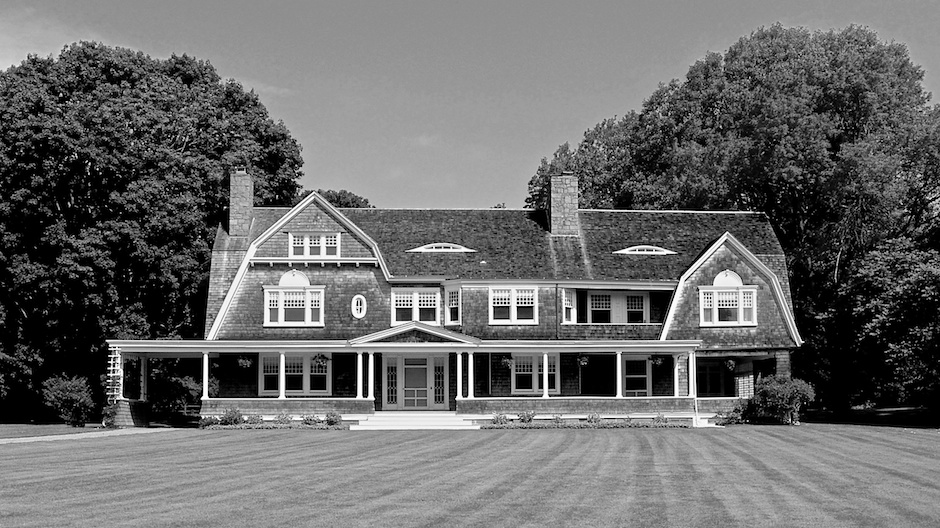 Quackenbush House, 1898, designed by architect Cyrus L.W. Eidlitz
Quackenbush House, 1898, designed by architect Cyrus L.W. Eidlitz
The 1898 Quackenbush House by the architect Cyrus L.W. Eidlitz is one of the grandest Shingle Style houses in the Village. The house features an asymmetrical design with gambrel dormers of different sizes, windows placed in a varied rhythm, walls that project and recede and a porch that cuts deeper and deeper under the house, all composed into an animated yet harmonious facade.
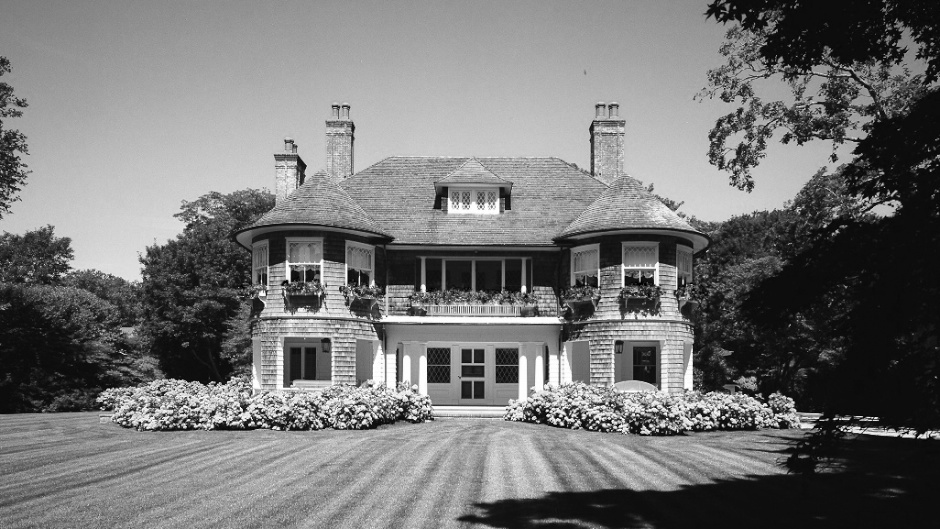 F.H. Davies House, 1899, designed by architect Joseph Greenleaf Thorp
F.H. Davies House, 1899, designed by architect Joseph Greenleaf Thorp
Three houses in the district — those built for F.H. Davies, E.Clifford Potter and Frederick G. Potter — are the work of Joseph Greenleaf Thorp, an East Hampton architect who developed his own reserved Shingle Style, which to a great extent gives East Hampton’s summer colony its unique character.
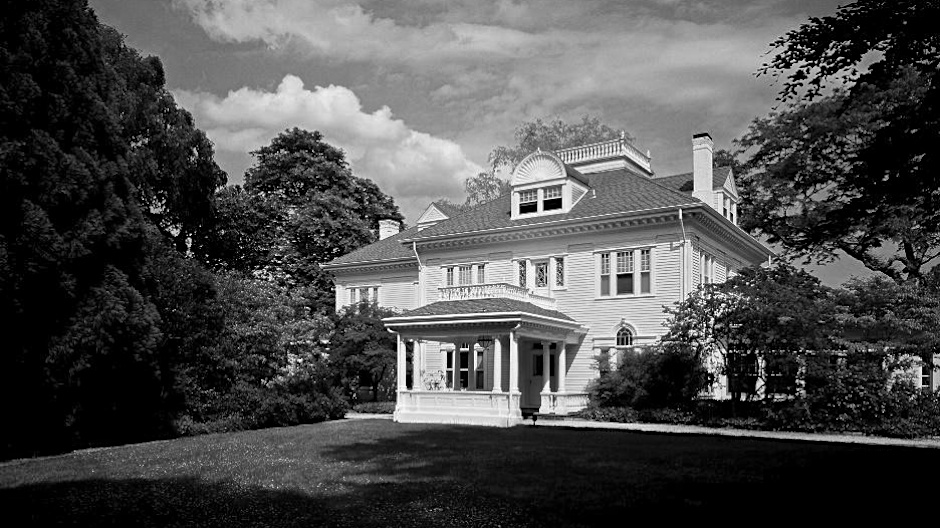 Satterwaite-Thompson House, remodeled by McKim, Mead and White, 1895
Satterwaite-Thompson House, remodeled by McKim, Mead and White, 1895
Three imposing Colonial Revival style country houses also make a major contribution to the character of Ocean Avenue. The prominent architectural firm of McKim, Mead and White introduced the Colonial Revival style to East Hampton with their transformation of the 1874 Satterthwaite House on Ocean Avenue for Charles G. Thompson in 1895. The Thompson House inspired the owners of the Terbell House and the Mershon-Draper House to remodel their houses in the Colonial Revival style in 1901.
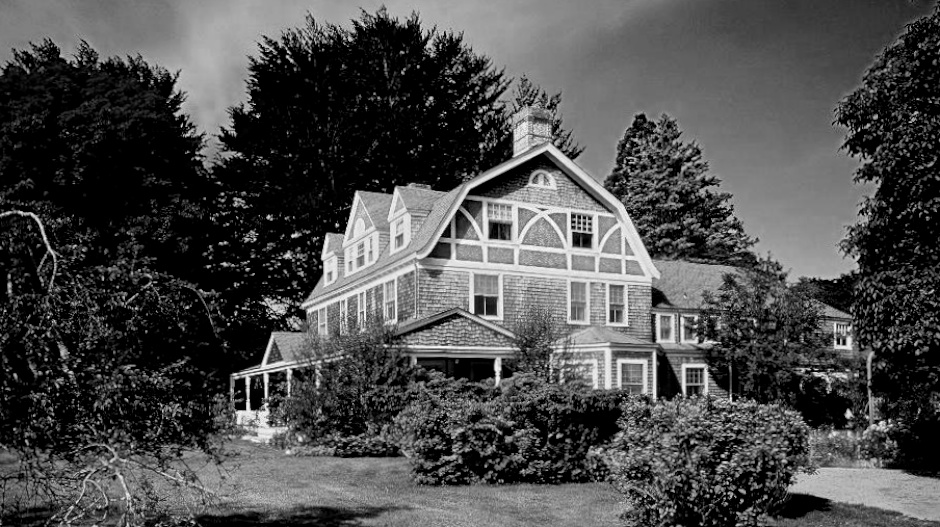 Robert S. Bowne House, 1889, designed by James H. L’Hommedieu.
Robert S. Bowne House, 1889, designed by James H. L’Hommedieu.
The Ocean Avenue Historic District is adjacent to the Main Street Historic District and the sense of continuity between the summer colony and the traditional village center is one of the most fortunate circumstances in East Hampton’s development. The harmony between the two areas is largely due to the sympathetic relationship that the informal and unpretentious summer cottages have to the Main Street farmhouses, with their simple forms and plain exteriors. The Ocean Avenue houses of Robert S. Bowne and James Gallatin, two Shingle Style houses of 1889, are particularly evocative of the Main Street farmhouses.
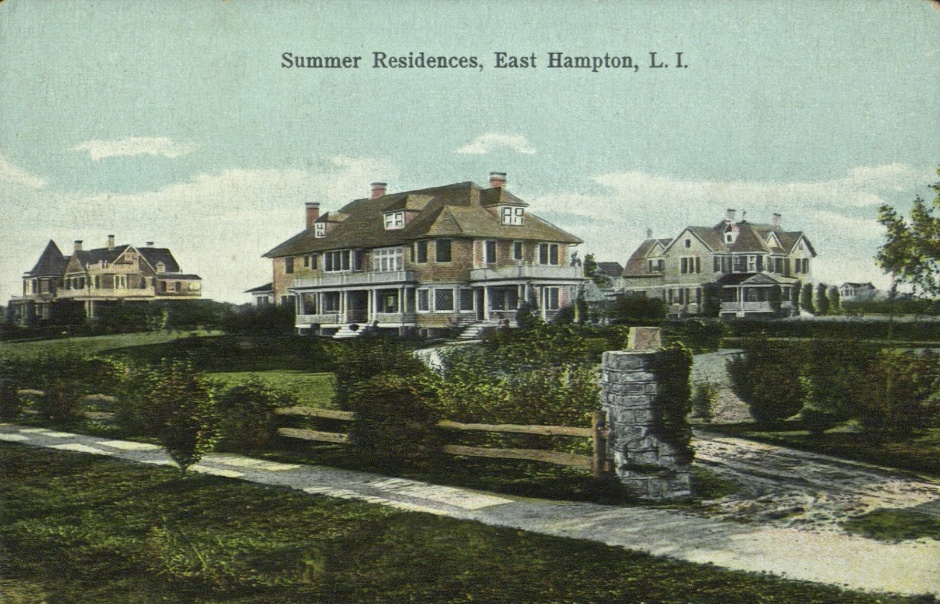 Ocean Avenue postcard from the Harvey Ginsberg Postcard Collectiion, courtesy of the East Hampton Library, Long Island Collection.
Ocean Avenue postcard from the Harvey Ginsberg Postcard Collectiion, courtesy of the East Hampton Library, Long Island Collection.
Frederick G. Potter and E. Clifford Potter were real estate developers who built apartment houses on Park Avenue, office buildings and theaters, including the Winter Garden Theater. Both brothers, who had summered in East Hampton since the 1880s, commissioned Joseph Greenleaf Thorp to design their Ocean Avenue summer cottages. (Frederick G. Potter’s house is in the center of the above postcard.)
The historic district continues to Main Beach where the bathhouses of the summer colony residents have been since 1876. The Ocean Avenue summer cottages along with the Main Beach Pavilion preserve a sense of the leisure life of the early residents of the summer colony.
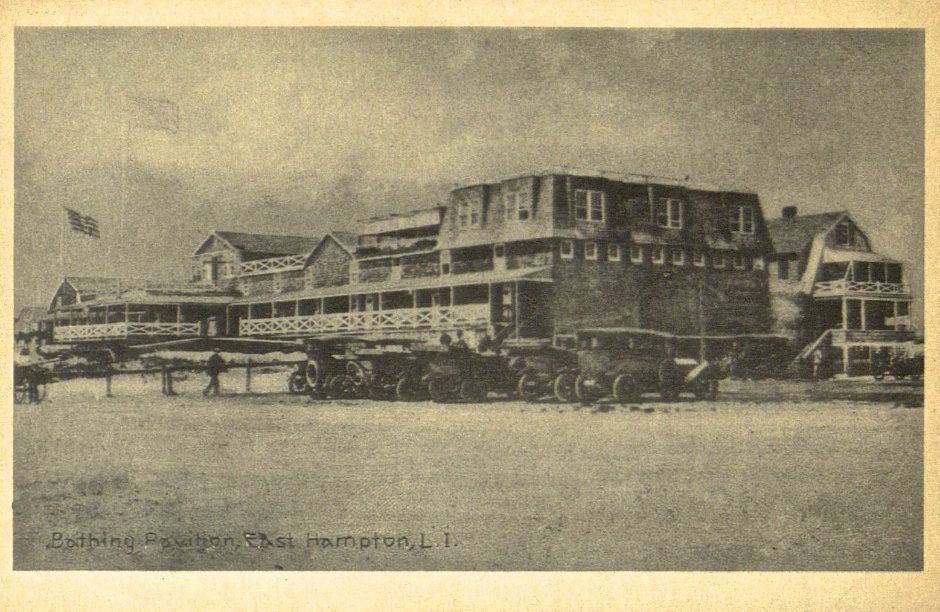
Bathing Pavilion, Main Beach, East Hampton. Archival postcard from the Harvey Ginsberg Postcard Collectiion, courtesy of the East Hampton Library, Long Island Collection.
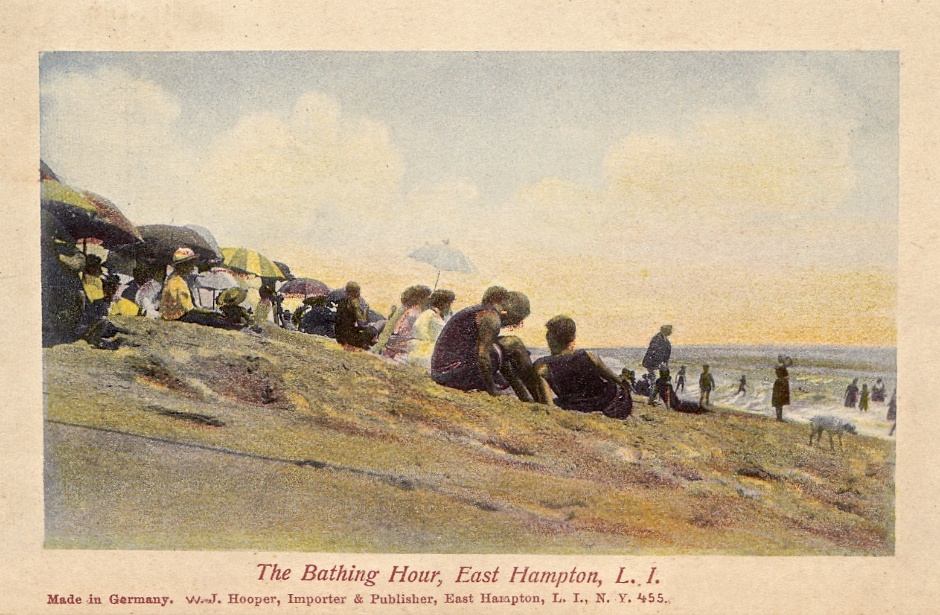 Main Beach postcard from the Harvey Ginsberg Postcard Collectiion, courtesy of the East Hampton Library, Long Island Collection.
Main Beach postcard from the Harvey Ginsberg Postcard Collectiion, courtesy of the East Hampton Library, Long Island Collection.
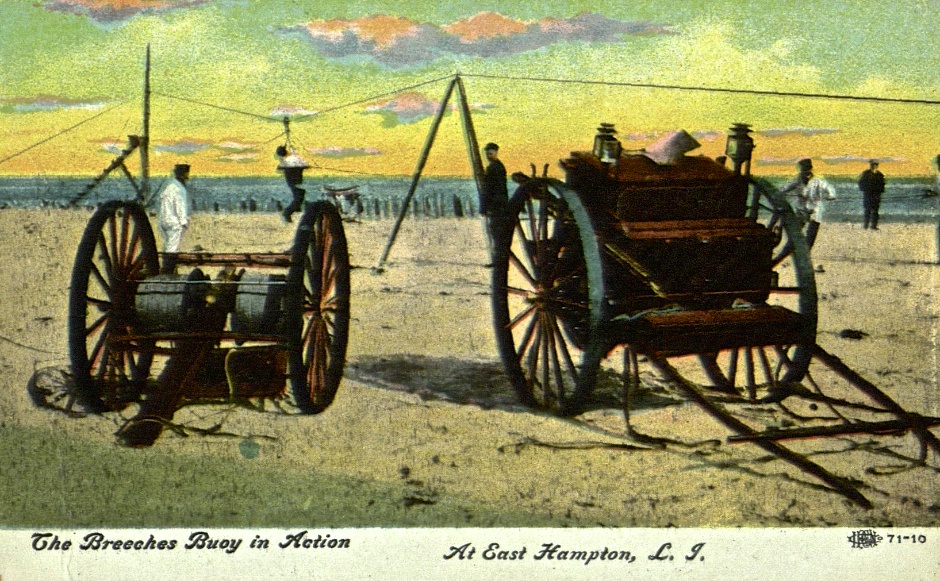 Breeches Buoy, Main Beach. Postcard from the Harvey Ginsberg Postcard Collectiion, courtesy of the East Hampton Library, Long Island Collection.
Breeches Buoy, Main Beach. Postcard from the Harvey Ginsberg Postcard Collectiion, courtesy of the East Hampton Library, Long Island Collection.
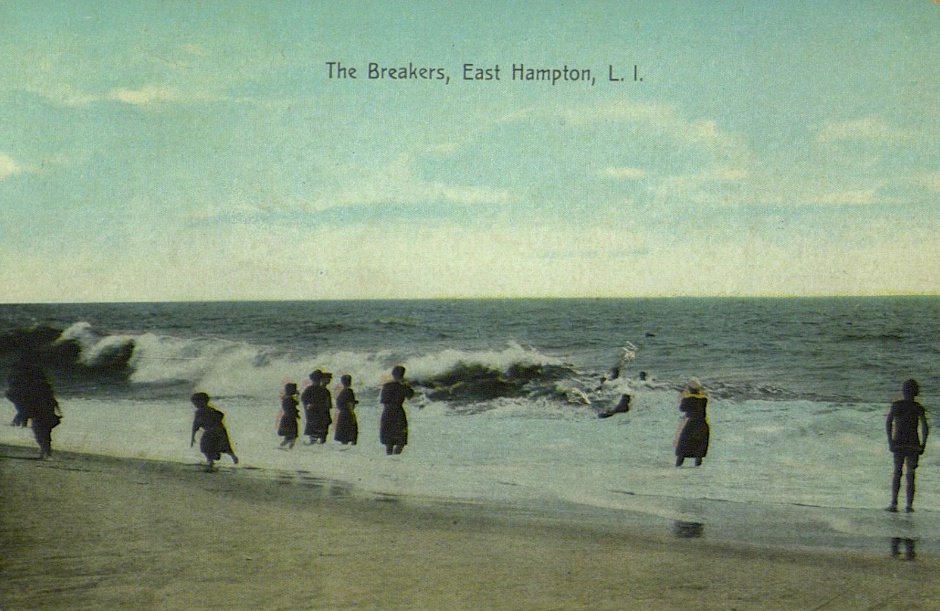 Postcard from the Harvey Ginsberg Postcard Collectiion, courtesy of the East Hampton Library, Long Island Collection.
Postcard from the Harvey Ginsberg Postcard Collectiion, courtesy of the East Hampton Library, Long Island Collection.
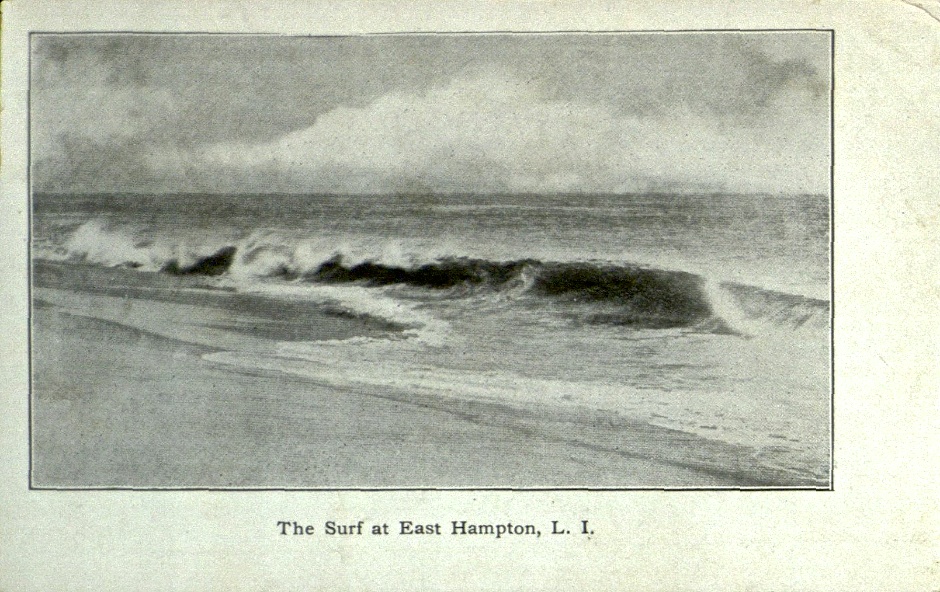 Postcard from the Harvey Ginsberg Postcard Collectiion, courtesy of the East Hampton Library, Long Island Collection.
Postcard from the Harvey Ginsberg Postcard Collectiion, courtesy of the East Hampton Library, Long Island Collection.
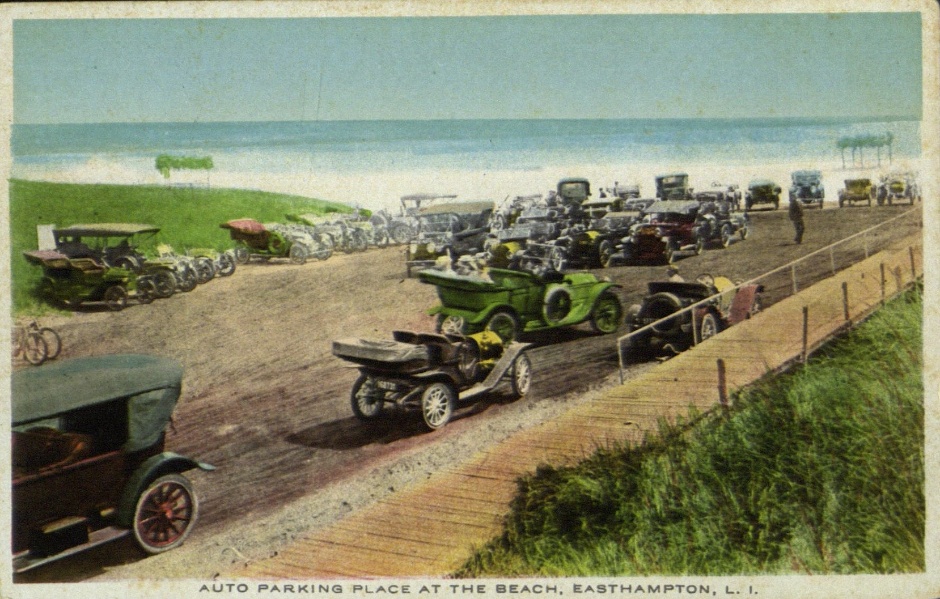 Postcard from the Harvey Ginsberg Postcard Collectiion, courtesy of the East Hampton Library, Long Island Collection.
Postcard from the Harvey Ginsberg Postcard Collectiion, courtesy of the East Hampton Library, Long Island Collection.
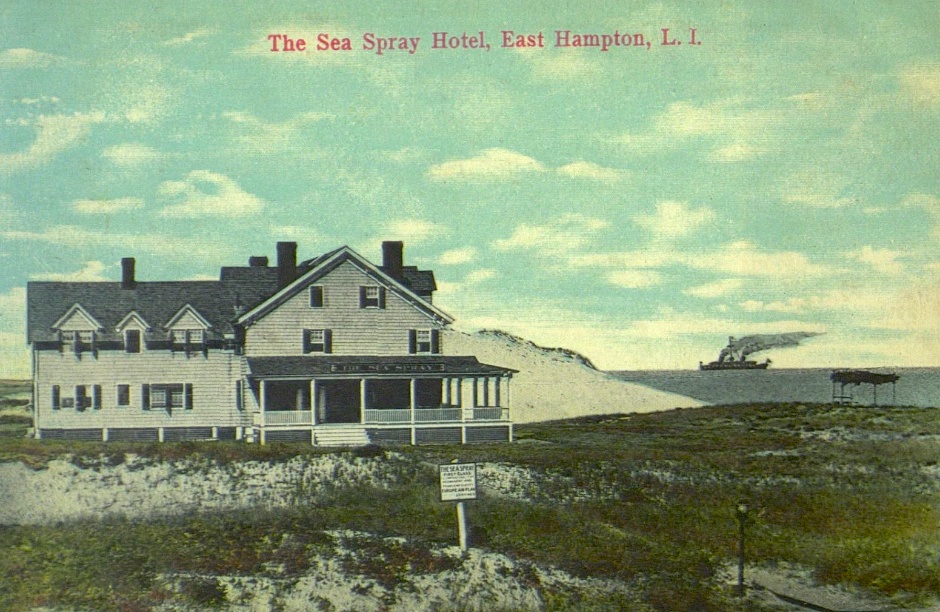 Sea Spray Hotel, Main Beach, East Hampton. (Hotel burned down in the 1970s). Postcard from the Harvey Ginsberg Postcard Collectiion, courtesy of the East Hampton Library, Long Island Collection.
Sea Spray Hotel, Main Beach, East Hampton. (Hotel burned down in the 1970s). Postcard from the Harvey Ginsberg Postcard Collectiion, courtesy of the East Hampton Library, Long Island Collection.
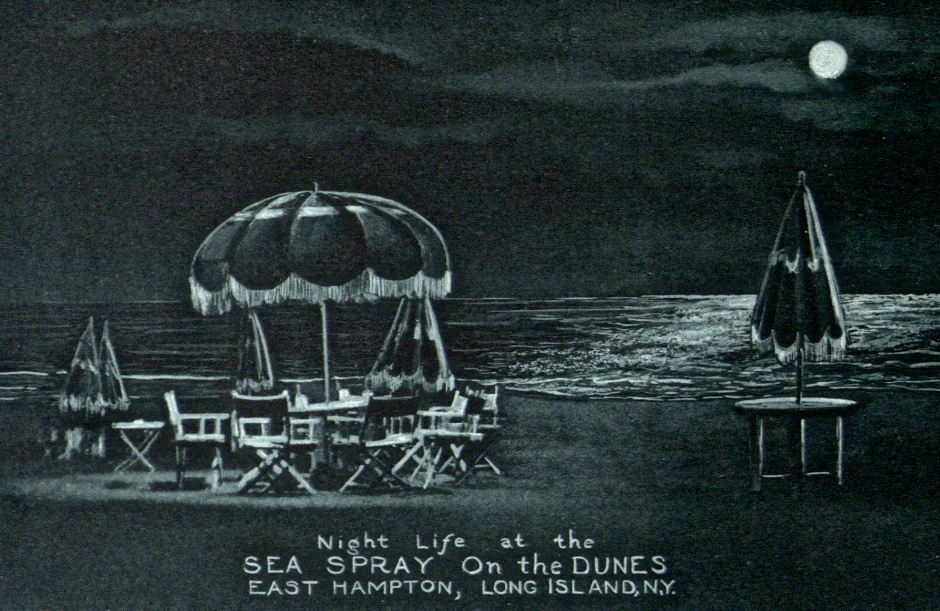 Archival postcard from the Harvey Ginsberg Postcard Collectiion, courtesy of the East Hampton Library, Long Island Collection.
Archival postcard from the Harvey Ginsberg Postcard Collectiion, courtesy of the East Hampton Library, Long Island Collection.
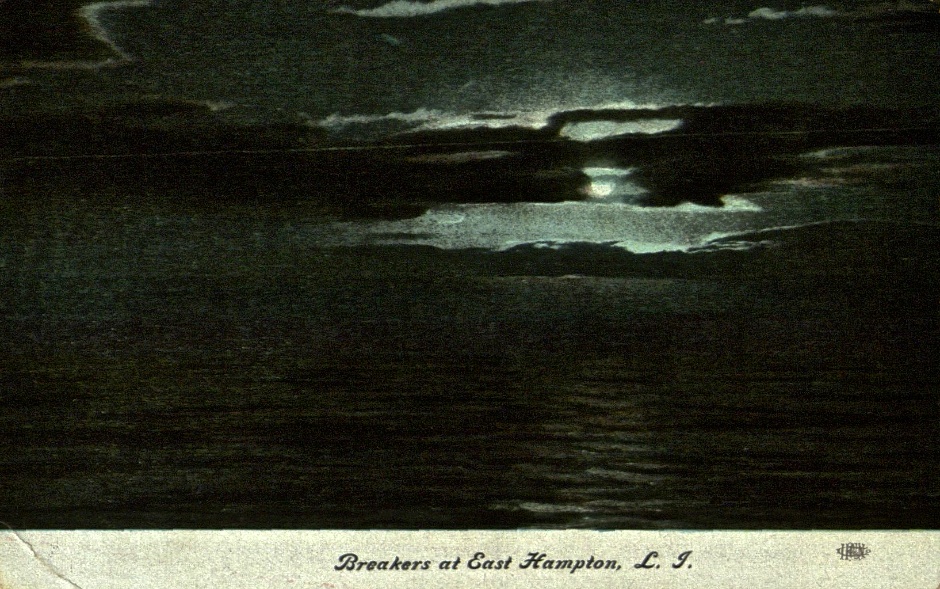 Breakers at Main Beach. Postcard from the Harvey Ginsberg Postcard Collectiion, courtesy of the East Hampton Library, Long Island Collection.
Breakers at Main Beach. Postcard from the Harvey Ginsberg Postcard Collectiion, courtesy of the East Hampton Library, Long Island Collection.
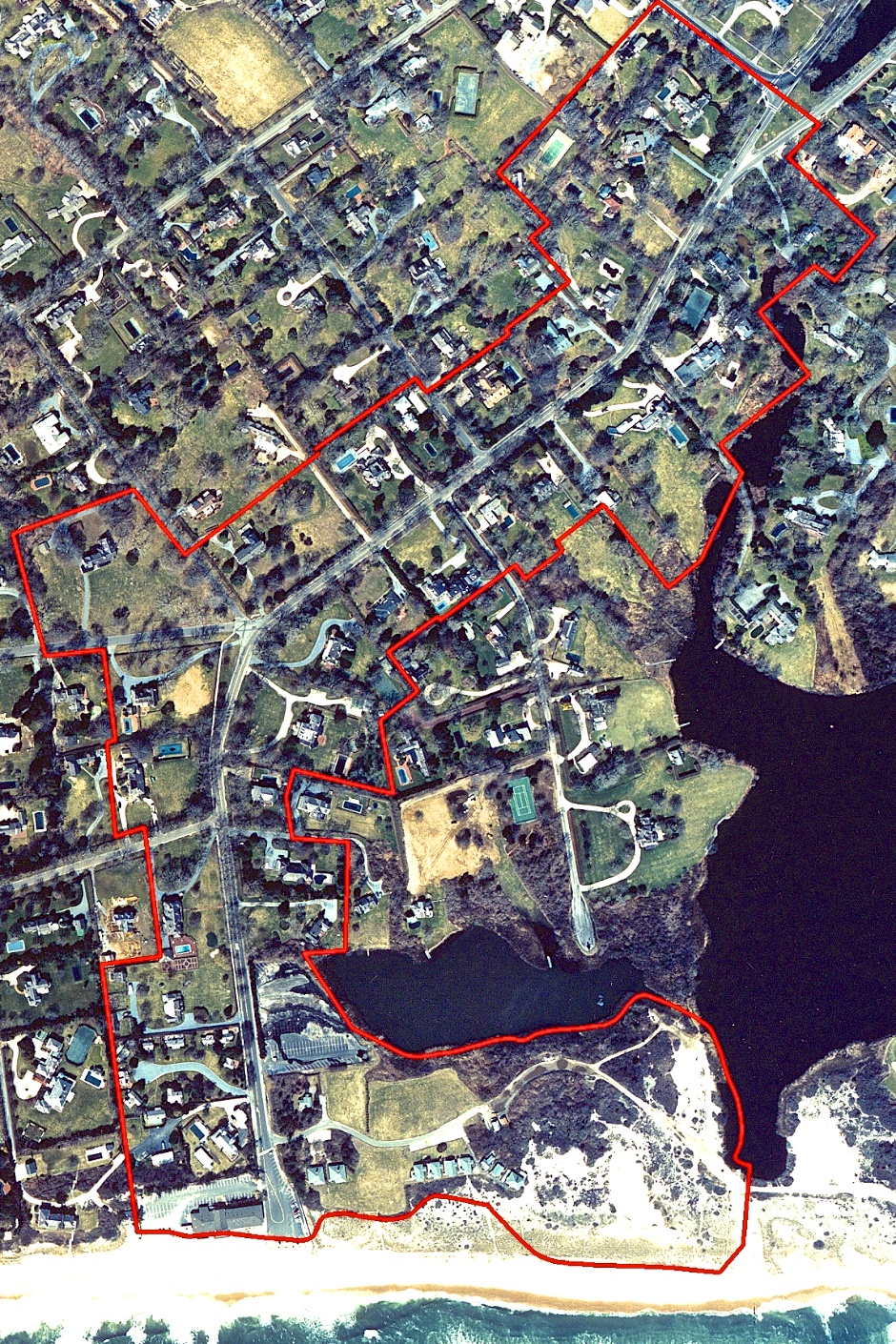
Ocean Avenue Historic District, Hook Pond & the Atlantic Ocean
——————————————————-
Written & Edited by Robert Hefner for the 2008 Village of East Hampton’s Report to Residents / Village of East Hampton Historic Preservation Program. Copy courtesy of Robert Hefner.
Photography, except postcard views & aerial, Jeff Heatley.
Ocean Avenue postcard from the Harvey Ginsberg Postcard Collectiion, courtesy of the East Hampton Library, Long Island Collection.
The Bathing Hour postcard courtesy of the East Hampton Historical Society.
Visit: AAQ/Portfolio/Preservation: East Hampton — Ocean Avenue to Main Beach
Visit: AAQ/Portfolio/Preservation: East Hampton Main Street Historic District / East Side
Visit: AAQ/Portfolio/Preservation: East Hampton Main Street Historic District / West Side
_______________________________________
Visit: Village of East Hampton — www.easthamptonvillage.org
Visit: Ocean Avenue & Main Beach, East Hampton
Visit: Huntting Lane & Nature Trail, East Hampton
Visit: Village of East Hampton — Ginsberg’s Postcards
_______________________________________
